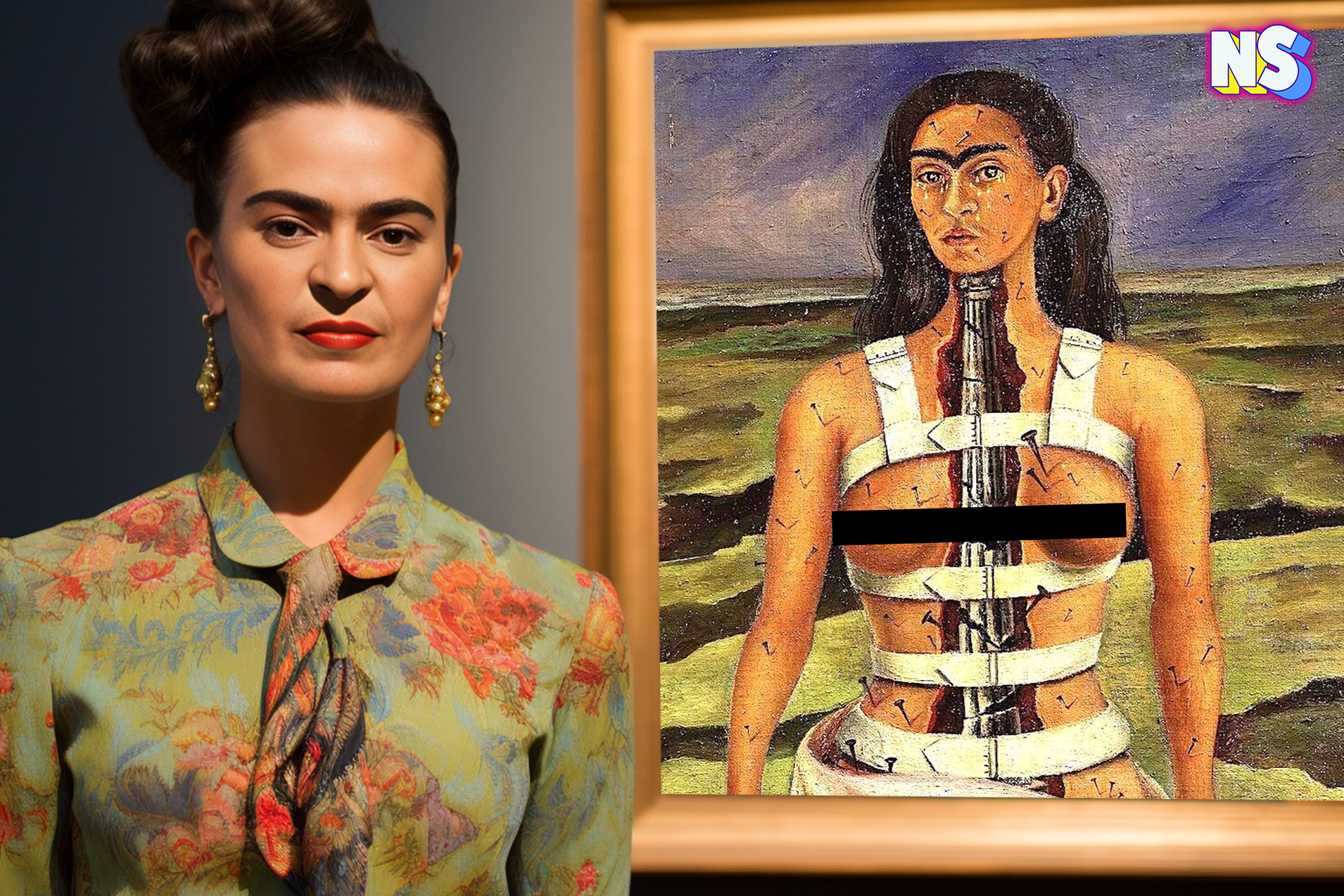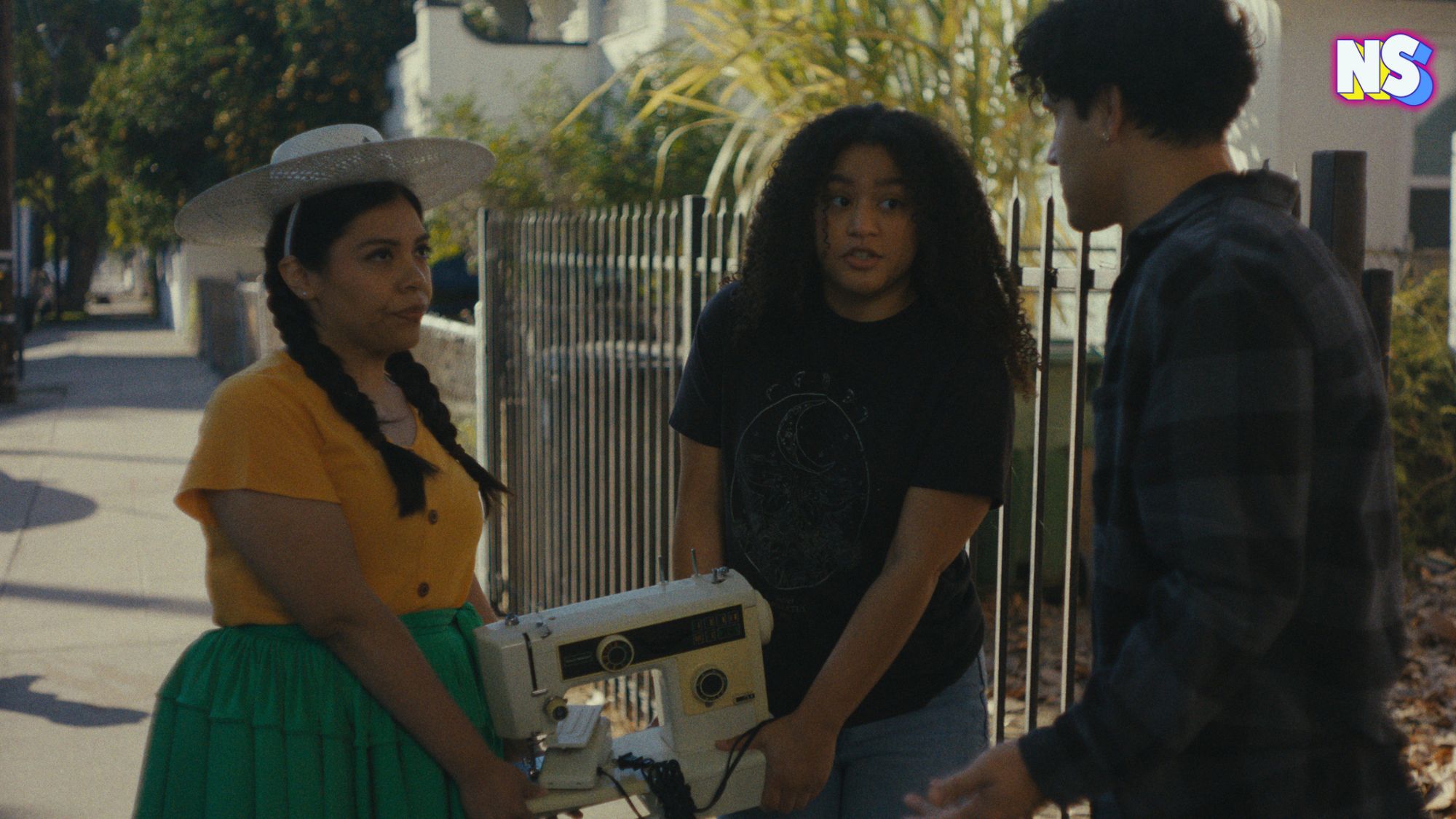Credit: FridaKahlo.org/ Illustration by Nuestro Stories
The Broken Column is considered a masterpiece. And rightfully so.
The famous painting by the Mexican artist Frida Kahlo, created in 1944, is considered one of her most powerful self portraits – a clear representation of her influence and meaning in the artworld, and beyond.
Like many of Kahlo’s pieces, The Broken Column combines a realistic portrayal of her physical pain with surreal and symbolic imagery – paving the way for women in all fields of work to openly express themselves.
And it all stemmed from an accident which almost left her paralyzed at the age of 18.
“The fearless surrealist has, over time, risen to an almost mythical status, her haunting life story at times overshadowing her visceral artwork, though the two, in actuality, can hardly be separated,” the article in the Huffington Post “Why Contemporary Art Is Unimaginable Without Frida Kahlo: How Frida Kahlo Forever Changed The Art World” explains.
At the age of 18, she was involved in a near-fatal bus accident that left her with a broken spine, pelvis, collarbone, and other debilitating injuries. She spent months in recovery and underwent numerous surgeries throughout her life to fix the painful damage to her body.
“This episode in her life started a long-term relationship with suffering and pain,” the online art blog nnart.org says in an entry about Kahlo’s life-changing accident.
A year before her death, Kahlo sat with Author Raquel Tibol, and described the accident. She explained that, on September 17, 1925, after a day of classes, she and her friend Alejandro Gomez Arias were injured when the bus they had been riding turned a corner and crashed into an electric trolley car at full speed. A handrail, a long metal rod, punctured her body.
“The streetcar crushed the bus against the street corner,” Kahlo told Tibol in the interview.
Kahlo added: “It was a strange crash, not violent but dull and slow, and it injured everyone, me much more seriously.”
Tibol’s book Frida Kahlo: An Open Life uses “medical records, journals, letters, interviews, and personal recollections” to tell Kahlo’s life of pain and art.
Frida Kahlo’s Bus Accident Art
“ … breaking her spinal column, collarbone and fracturing her leg, Kahlo spent months unable to walk; bedridden and bored, she took up painting,” the online magazine Dazed writes.”The accident and her resulting injuries played a pivotal role in her work, most notably ‘The Broken Column’ (1944) in which Kahlo appears split in two, held together by bandages with a crumbling stone column replacing her spine.”Today art critics say The Broken Column, through all of its depth and depictions of physical pain, is actually a feminist statement for challenging traditional notions of beauty and strength while highlighting the resilience and courage of a woman.
An art connesiur, and a novice alike, are clearly able to see the resilience in Kahlo’s face despite the immense pain depicted by the symbols throughout the painting. She’s strong yet fragile.
“She wrote her fears and fantasies on her very flesh, ripping open her skin for viewers to see and feel for themselves,” The Huffington Post articles declares. “Bridging the gap between a whispered confession and a collective subconscious dream, Kahlo’s paintings don’t just tell stories, they open wounds.”
Perhaps the most significant aspect of The Broken Column is the central image of a shattered column, representing Kahlo’s damaged spine from that fateful day in 1925.
Kahlo had to wear a full-body cast after one of her spinal surgeries, and she often depicted herself in her artwork wearing this cast. The nails piercing her body in the painting are a representation of the intense pain she felt as a result of her injuries and surgeries.
Art lovers, Kahlo fans, and casual admirers see and still analyze the painting’s landscape in the background of a desolate, barren desert. Perhaps it’s reflecting the isolation and emotional turmoil Kahlo felt. The tears on her cheeks, the exposed heart, and the nails all contribute to the painting’s powerful symbolism.
Art historians agree that The Broken Column remains one of her most iconic and emotionally charged works, offering viewers a glimpse into the complex and challenging life of Frida Kahlo.





